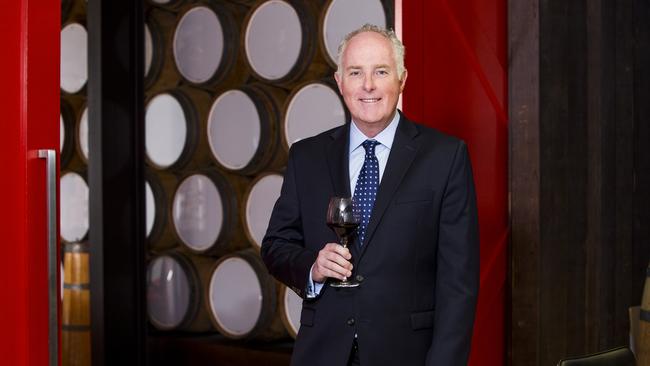Treasury Wine Estates pays $49m to settle class action
Treasury Wine Estates will pay $49m to settle a shareholder class action.

Treasury Wine Estates will pay $49 million to settle a shareholder class action brought against it over alleged misleading and deceptive conduct.
Shareholder Brian Jones, represented by Maurice Blackburn, launched the action in 2014 for allegedly breaching disclosure obligations over $160m of writedowns related to its US inventory. The writedowns included a $35m provision to destroy six million bottles of old stock.
The class action alleged Treasury Wine “failed to advise the ASX of information that was likely to have a material impact on the value of TWE’s shares and made statements that misled or deceived the market about TWE’s expected earnings”.
The wine producer yesterday said the settlement included interest and costs and was fully covered by the company’s insurance, so its financial results would not be affected. “The agreement to settle was a commercial decision made in the best interests of shareholders to enable the company to remain focused on executing against its strategy without the distraction and expense of the legal proceeding,” Treasury Wines said in a statement.
“The settlement amount of $49m and the fact it was insured means, from a magnitude perspective for a $9 billion market cap company, it doesn’t have that much of an impact,” Morningstar analyst Adam Flack said. “The days where they were destroying wine, back before the current CEO, are likely behind them.”
Treasury Wines owns a number of prominent brands including Penfolds, Lindemans, Rosemount and Wolf Blass. It has undergone a major restructuring since Michael Clarke took the helm in 2014.
Then, there were calls for the winemaker to offload its US business. Now the US is now one of its key growth markets.
“We’re expecting continued high single-digit revenue growth in the US. They’ve done a really nice job of premiumising their product portfolio in the US, both through organic and acquisition strategies,” Mr Flack said.
The winemaker has posted a 55 per cent rise in net profit for 2017 to $269.1m, led by growth in North America and Asia.
“Treasury Wine management has done a good job of turning around an underperforming business, pulling out costs, focusing marketing spend and executing a premiumisation strategy,” UBS analyst Ben Gilbert said in a note.
“This is delivering strong earnings growth and has positioned the company to grow solidly in its two main growth markets (US and Asia/China).”
Treasury Wine began selling French wine in China this year, seeking a larger share of the fastest-growing wine market.
“There’s a major opportunity for the company to continue to ride the tailwinds of the rising middle class in China. High-end and even mid-range wine will remain an area that Chinese consumers will continue to spend on,” Mr Flack said.
Mr Gilbert said: “A key driver of growth will likely be the extent that management achieves value/case growth, mix benefits and penetration of new brands.”
Although the market has hailed the company’s turnaround, Mr Flack thinks the share price may be getting a little overheated.
“Kudos to the management team for turning around what was a struggling business just a few years ago but I think now from an investor standpoint the market may have gotten a bit ahead of itself in terms of how much growth and profitability the company can generate.”
Treasury Wine shares yesterday closed up 18c at $14.14.




To join the conversation, please log in. Don't have an account? Register
Join the conversation, you are commenting as Logout